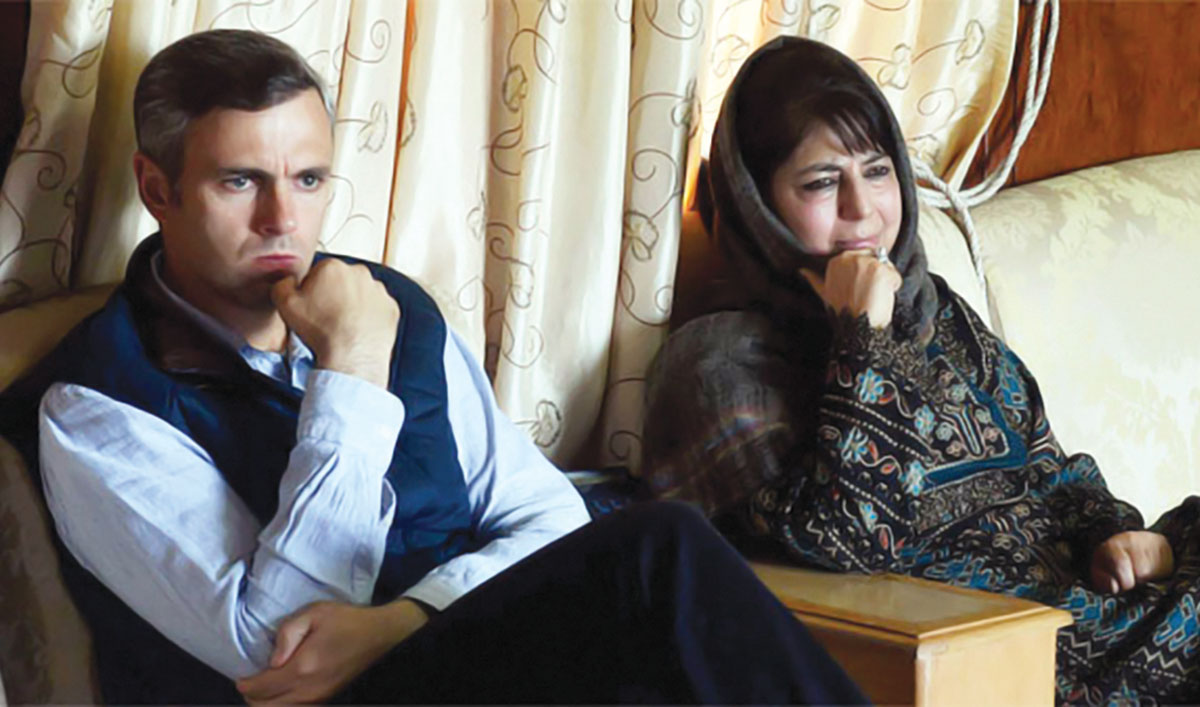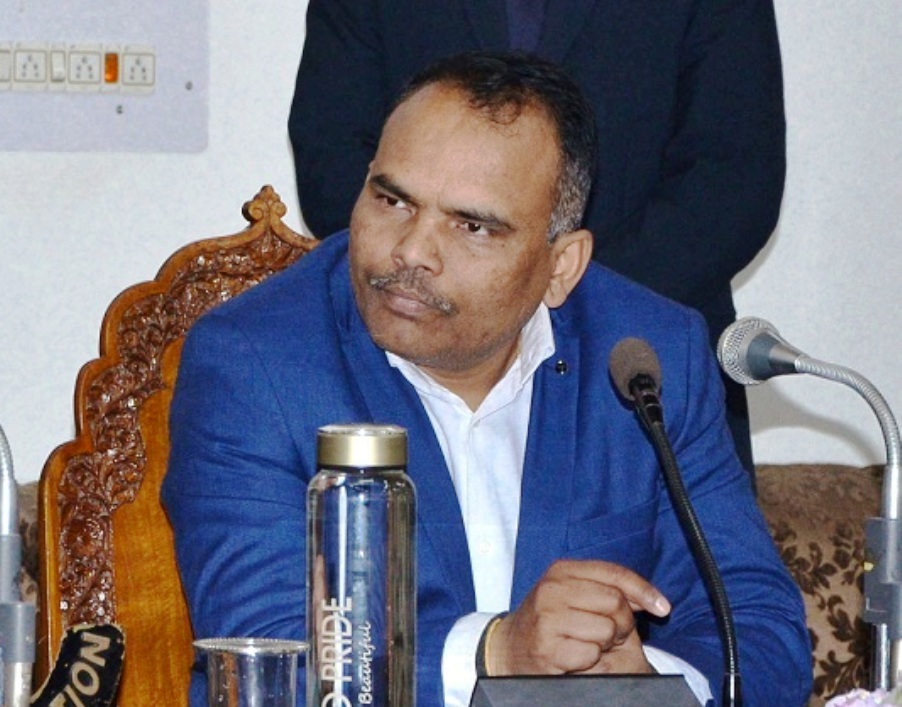In 2019, BJP won Ladakh for helping the region break away from Jammu and Kashmir and emerge as a UT. Five years later, the party is facing music and a cold shoulder, reports Khalid Bashir Gura
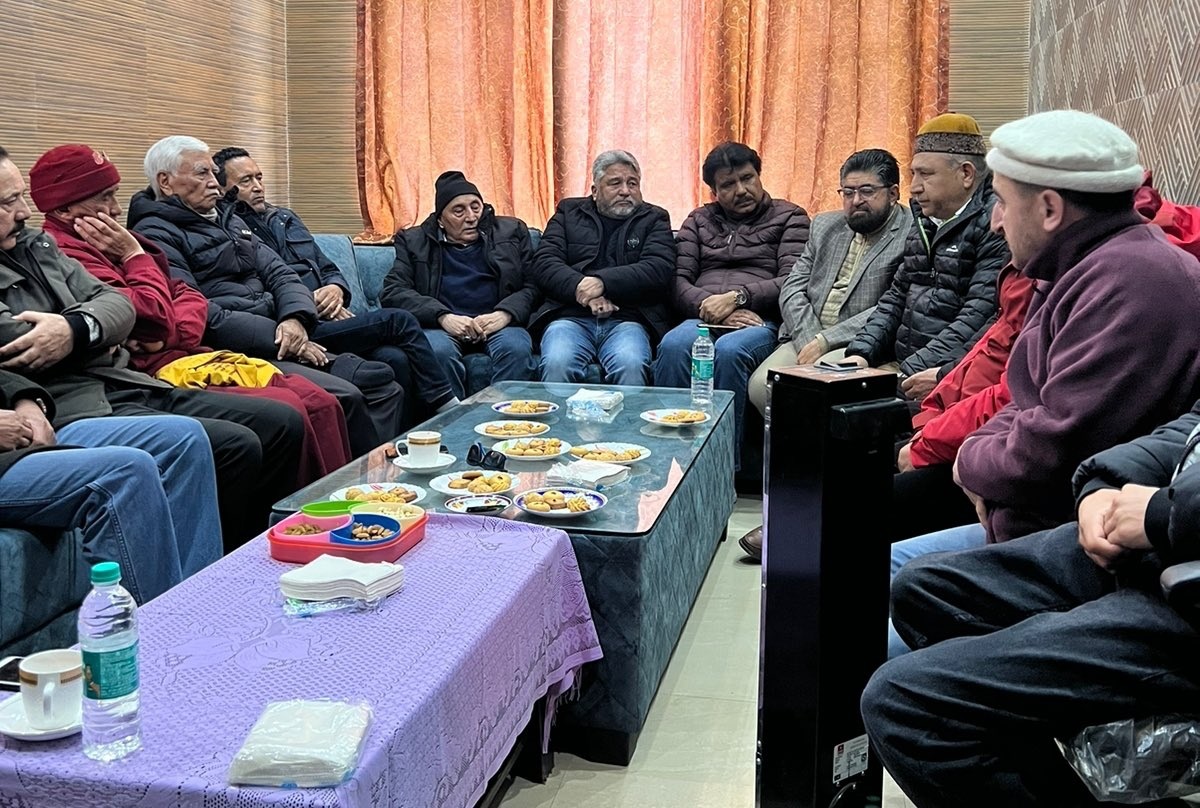
The celebrations over the reading down of Article 370 on August 5, 2019, were short-lived. After Ladakh was separated from the erstwhile state, its initial jubilation turned into resentment and protests. The sparsely populated cold desert feels disempowered and is battling for constitutional safeguards to protect its identity, rights and status.
Battling anonymous “admirer’s” threats disguised, Sonam Wangchuk, renowned climate activist and education reformer has been spearheading the regional movement in sub-zero temperatures. In the last few months, he successfully drew the attention and support of a wider audience virtually as crowds thronged the site as he went on a hunger strike.
Wangchuk communicates through social media to a wider audience. On March 6, he began his 21-day fast, which was followed by a women’s hunger strike. The climate continues.
In the video, Breaking Election Promises Is Not a Crime but Reminding Leaders Is he narrated that we are all trying to remind the government of India especially the Ministry of Home Affairs of the promises they made to the fragile ecosystem of Ladakh and indigenous people to safeguard them under the sixth schedule of Indian Constitution. Talking about a “strange and interesting incident”, he said an anonymous admirer informed him through an unmarked envelope with a handwritten letter inside it claiming that the bank account details of “Wangchuk’s institutes” had been taken by the “anti-money laundering department.” “The same has happened in (Arvind) Kejriwal’s case,” Wangchuk said, reading aloud from the letter on video posted on social media.
Historically, Ladakh has been a major receiver of foreign development funds under FCRA in Jammu and Kashmir as global nongovernmental organisations have been helping the region on various fronts.
Wangchuk welcomed investigations. Another admirer, he said, who claimed to work in one of the Union government investigating agencies forewarned him of accidents and risks to life. He suggested Wangchuk should “take very good care” of his safety and his life. However, he wished to die in such a way. “Sometimes deaths can spark revolutions,” Wangchuk said in his social media post.
In September 2020, in the aftermath of the creation of the Union Territory of Ladakh, socio-political and religious organisations formed Leh Apex Body (LAB)from Buddhist-majority Leh and Kargil Democratic Alliance (KDA) from Muslim-majority Kargil to demand rights and status for 2.74 lakhs (2011) people inhabiting the region.
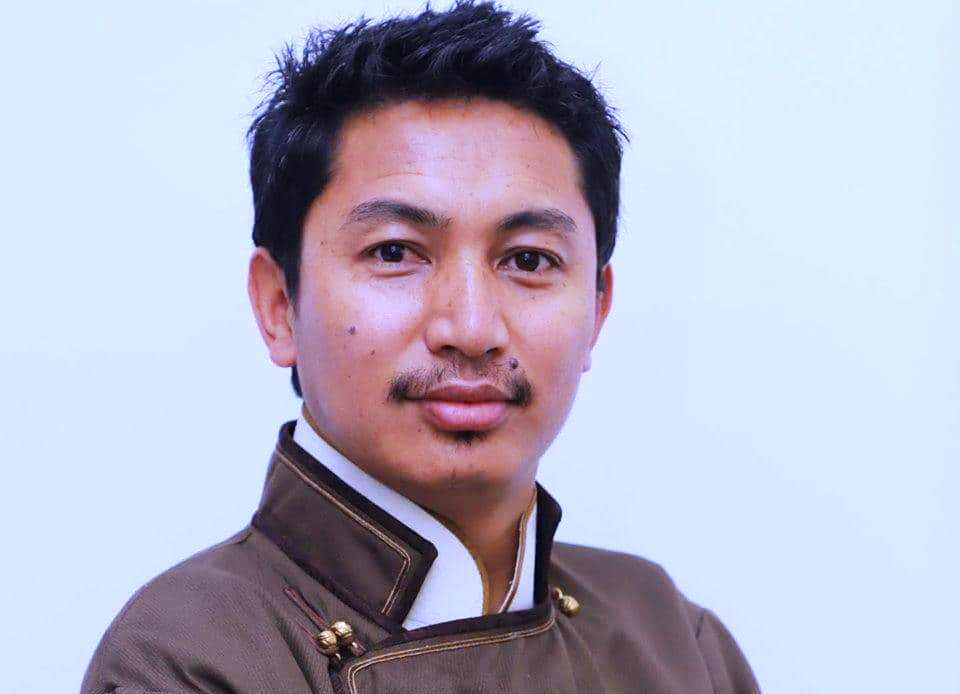
Demands and Fears
Fearing safety nets have fallen and Ladakh will be exposed to floodgates of outside influence, the locals fear demographic change, and environmental degradation, besides political and cultural disempowerment.
“Our democratic rights have been snatched especially after the reading down of Article 370,” said Qamar Ali Akhoon, senior National Conference leader and co-chairman of KDA. “We have no say in local administration. The powers of LAHDC have also been diluted.” The demands have united the two districts traditionally divided along religious, and political lines. On February 3, thousands of people marched on the roads of Leh to press for the demands and Kargil observed a strike in solidarity.
Talks with MHA
“LAB and KDA both were in talks with the MHA for statehood, sixth schedule extension to Ladakh which will get the region tribal status, two parliamentary seats for Leh and Kargil and job reservations,” said Mustafa Haji, lawyer and legal advisor to the apex body. The last update on these negotiations was the Home Minister’s point-blank refusal of the sixth schedule and the statehood. This infuriated the region, Haji said and hunger strikes started.
Dr Mohammad Jaffer Akhone who was elected as the new Chief Executive Councillor (CEC) after the NC, Congress alliance swept the LAHDC polls in 2023, said the people of Kargil were always against the demand of UT even before August 5, 2019.
“Because of Article 370 our land, livelihood, and jobs were protected. But now as it is gone, we are demanding tribal status under the sixth schedule like other north-east states,” Akhone said. “Since the stripping of special status, we don’t have our public service commission and our youth is unemployed.”
Besides, the region demanded two Lok Sabha constituencies. “Two MPs will ensure communal harmony and avoid conflict of interest during elections for Leh and Kargil,” he said. “The LAHDC is also stripped of financial and administrative powers.”
They have also been seeking an extension of Article 371, already in vogue in Assam, Meghalaya, Tripura and Mizoram for the preservation of land rights, and the socio-cultural and ethnic identity of natives. They say they are eligible for similar protection since 97 per cent of their region is tribal.
Deeming unity of Leh and Kargil as the solution to the struggle, Sajjad Kargil, a senior KDA member said in the absence of safeguards, there are land allotments and environmental and demographic issues besides political disempowerment. “The sixth schedule has been part of the manifestos in previous elections. After abrogation, there have not been any gazetted recruitments,” Kargili said. “We are concerned about constitutional rights and rising unemployment in the absence of PSC and legislature.”
In 2019, when Ladakh was swept by Modi wave, apparently banking on the abrogation of Article 370, Kargili ended up as a runner-up in Lok Sabha polls. He contested independently with NC and PDP support. No such wave exists anywhere in the region now.
An erstwhile BJP member and minister in the BJPDP coalition, Chering Dorjay, who is also a member of LAB, said Ladakh is vulnerable but the centre is not budging. “It depends on the new government at the centre,” Dorjay who was part of a series of meetings with MHA said.
Ashraf Ali Barcha, President Anjuman Imamia Leh and member of LAB said without consulting stakeholders in Ladakh BJP imposed their dictates.
“Ladakh is an eco-fragile area and we survive on depleting glaciers. “When it will be exposed to reckless development, mining of resources and we will witness environmental catastrophe as has been highlighted by Wangchuk,” Barcha said.
“We were immune to outside influence when we had Article 370 but now we are vulnerable. We have a population of around three lakh and we will be outnumbered and turned into a minority easily by outsiders.”
President of the Islamia School Kargil, Sheikh Nazir Ul Mehdi Mohammadi, said that despite a series of meetings there has been no outcome as long as the BJP is in power. However, the spirit of people is unbroken and the struggle will continue.
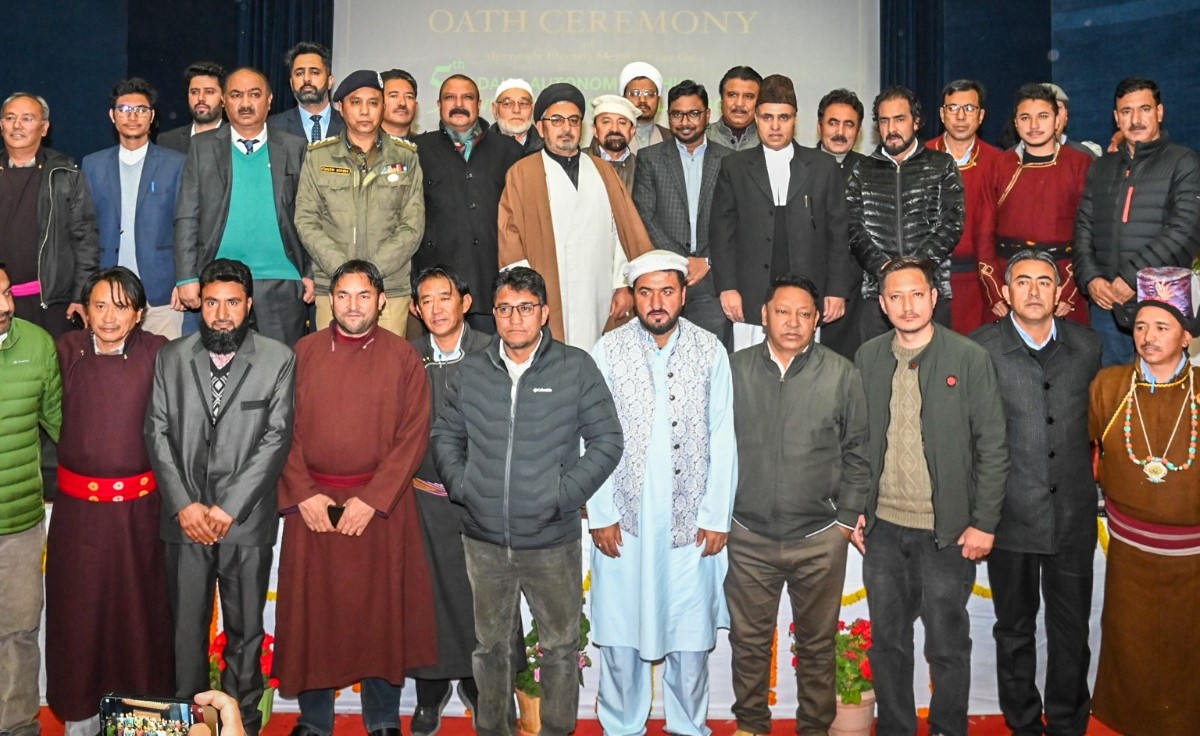
BJP On Back Foot
The constituency will go to polls on May 20. In anticipation, the BJP dropped its incumbent MP, Jamyang Tsering Namgyal who had vociferously espoused the removal of Article 370. Now, Tashi Gyalson (chairman of the Ladakh Autonomous Hill Development Council and former PDP member) would be a BJP candidate.
Earlier, Namgyal gave a long interview to India Today editorial director Rahul Kanwal in August 2019, in his special programme JAB WE MET as he spoke at length about his political and personal journey.
His wife Sonam Wangmo, spoke about former JNUSU president Kanhaiya Kumar who was arrested because of being a student leader. She feels that what happened with Kumar in JNU was wrong. She said it happened in front of her hostel and she knew Kumar was not there. Wangmo was pursuing her PhD, at JNU, and said her husband tried to convince her to change her ideology by reading books but she didn’t read them.
“In a meeting when the Home Minister was reminded of the promise in the manifesto of last election, he said the incumbent MP will be changed,” Haji said, insisting he has lost popularity as he has failed to fulfil any of the promises. The region, however, sees the election as a litmus test. “We aim to keep the BJP out of Ladakh.”
“The incumbent MP has not attended a single meet of general council meeting of the council in five years. He always ignored Kargil,” alleged Akhoon. BJP is trying to project new candidates to counter anti-incumbency, according to Kargili. There was an effort to communalise the region but it failed.
Kargili said, if NC and Islamia School, Kargil will support him, he will contest the elections. Dorjay believes that anti-incumbency is so strong that whosoever will be fighting against the BJP will win. The government, they said, has been busy fracturing the Kargil-Leh alliance but has failed till now.
Despite a wave against BJP, it is not a cakewalk for Congress as the party’s baggage is being discussed publicly. “Congress gave a mandate to a Leh candidate and supported their proxy candidate, Asgar Karabalaie in Kargil to fracture Kargil votes,” Mohammadi said. “Our votes were fractured and BJP emerged victorious.”
Most of the NC members are part of Jamiat Ulema and they are against Congress. Voices are seeking a mandate for Kargili.
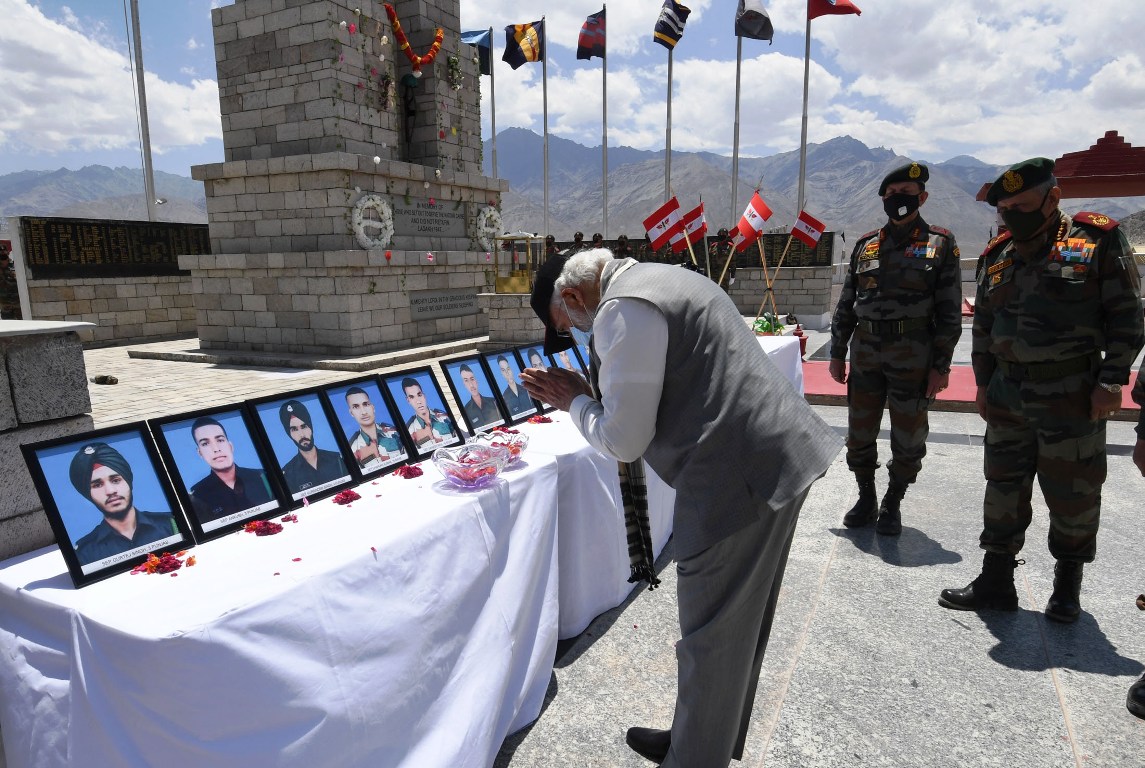
A Strategic Belt
Ladakh is strategically important as it borders Pakistan and China. “We are also demanding safeguards under the constitution but it will take time,” said Nawang Samstan, a BJP leader. Justifying the dropping of incumbent MP, Namgya, he said, the party knows his popularity is gone.
Ladakh’s infrastructure has developed especially regarding its connectivity and accessibility to the outside world. “The roads, electricity and water have reached too far off places,” Muhammad Hassan Pasha, Media in-charge of Ladakh BJP said.
Academic and political analyst Siddiq Wahid said Ladakh is an issue of promises not kept. “The strategic importance of Ladakh is that it is a borderland that faces what Delhi perceives to be its two main geopolitical adversaries, China and Pakistan,” Wahid said. “Dissatisfaction and instability in such a region can neither be risked nor afforded – an elementary observation of strategic planning.”
Post Script
Reports appearing in the media suggest former BJP MP, Jamyang Tsering Namgyal is planning to contest independently.












